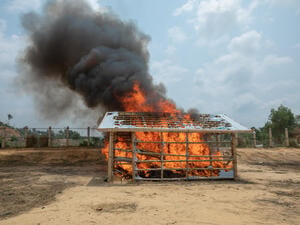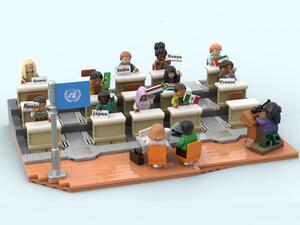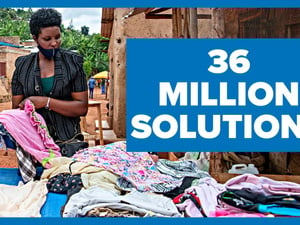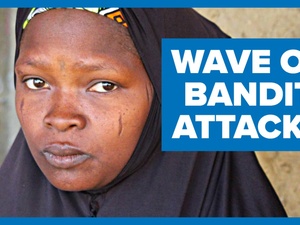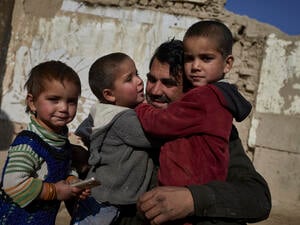UNHCR statement on the refugee response programme in Uganda
UNHCR statement on the refugee response programme in Uganda
The UN Office of Internal Oversight (OIOS) audit report into UNHCR’s Uganda operation, released this week, contains findings that show clear gaps and weaknesses in risk management in a number of areas during the period between July 2016 and December 2017. The audit followed the massive influx of refugees from South Sudan in 2016 – mid 2017, when UNHCR’s staffing capacity in key functions and in remote locations was very low, followed by a rapidly expanded operation in the second half of 2017 with many new staff and partners.
UNHCR, the UN Refugee Agency, is in the business of saving lives and protecting people. Maintaining the trust and confidence of our donors and of the general public is of utmost importance to us. A number of internal reviews and technical oversight missions had identified risky areas in the operation during 2017. UNHCR worked closely with the OIOS auditors, who came to Uganda in February 2018, identifying issues and providing information that was used in the audit. We have accepted the recommendations of the OIOS auditors and have been working to address them well before this report was issued on 27 November, including in conjunction with Uganda’s Office of the Prime Minister.
Underscoring the urgency with which UNHCR was seized with these issues, the High Commissioner for Refugees, Filippo Grandi, visited Kampala in January 2018 to assess the complex challenges being faced in the refugee response and meet with the government at the highest level. Amongst other measures introduced, he agreed with the Prime Minister to launch the verification exercise into refugee registration data just completed. He also upgraded the leadership of the UNHCR operation to manage these challenges.
Various corrective measures have been put in place, supported by a plan for ongoing and future actions. There is continuous follow-up. Measures we have taken to date include revising or redesigning and rolling out new Standard Operating Procedures for the reception of refugees, their registration, protection, assistance (food, non-food items – core relief supplies) and case management. The complaints and feedback mechanisms for refugees have been strengthened with a new inter-agency call-centre. We have also strengthened staffing in key operations functions, in particular with regard to reinforced capacities in oversight and management. These include the establishment of a senior post in risk management and compliance. Monitoring and reporting functions have additionally been reviewed, revised and enhanced.
In regard to road construction, an investigation is ongoing and we are pursuing a full recovery of funds from any project partners of concern. Allowances paid to civil servants are verified through attendance records and payment to individual bank accounts with overall responsibility lying with the government.
To address concerns about the accuracy of registration data, a countrywide biometric verification exercise of the refugee and asylum-seeker population was conducted between March and October 2018. The Government of Uganda is now committed to using the appropriate tools for continuous registration, which is their responsibility, and to ensuring the integrity of the registration process. The strengthened registration and case management systems will improve service and assistance delivery, including distribution of food. UNHCR is working closely with the Office of the Prime Minister in the roll-out of these new systems and jointly addressing obstacles that emerge in their practical application at field level.
UNHCR has also closely reviewed its monitoring of water delivery trucking in remote refugee settlements. We are doing top-to-bottom reviews of contracts, invoices and delivery verification before proceeding with any payments. Significant progress has been made in reducing water trucking, which is expensive, from 37 per cent in May 2017 to 7 per cent over the course of the year, following completion of several water schemes in Rhino, Imvepi and Palorinya refugee settlements in northern Uganda. With the new measures in place, we expect a further reduction to 5 per cent in December 2018.
The audit recommendations vis-à-vis partnership management, performance monitoring, procurement procedures, non-food item distribution and warehouse management are being addressed and toughened measures have been put in place, including with partner organizations and the Office of the Prime Minister, where these activities are jointly implemented. Progress will be reviewed regularly.
UNHCR has additionally established a high-level dialogue with the Office of the Prime Minister and other government authorities on the audit findings, including regarding recovery of funds as may be needed. Fuel cards and vehicle tracking have been introduced for implementation in 2019. A task force has been set up to review projects implemented by the Office of the Prime Minister. A preliminary report is due in mid-December.
UNHCR is determined to ensure the full integrity of the refugee response in Uganda and is addressing all issues identified in the audit report.


